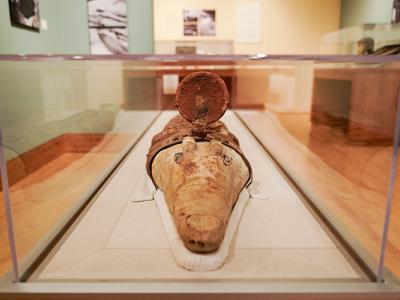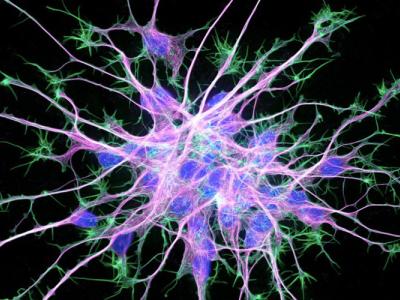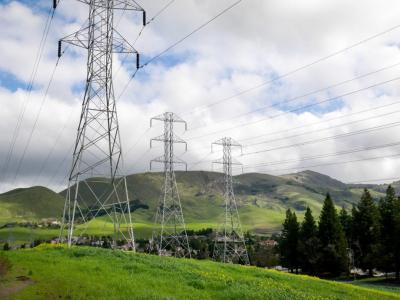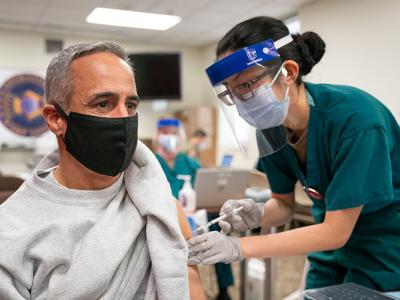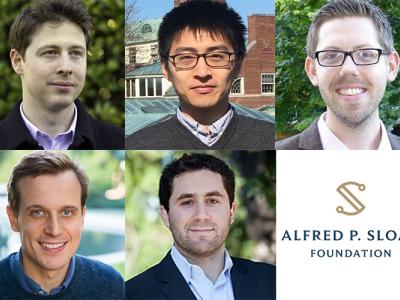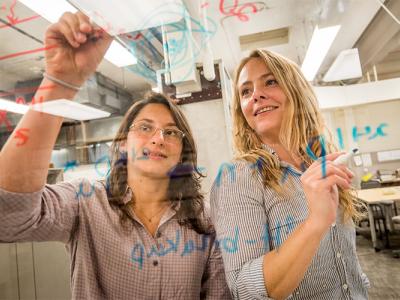New research released today by the UC Berkeley California Policy Lab finds that, contrary to some news media reports suggesting a mass exodus from California, most moves in 2020 happened within the state. Exits from California in 2020 largely mirrored historical patterns, while the biggest change was a decrease in people moving into the state.
Research News
Learn more about UC Berkeley's researchers and innovators.
Showing 1073 - 1088 of 3459 Results
More than 100 years after their discovery, 19 mummified crocodiles are part of the Egyptian collection at the Phoebe A. Hearst Museum of Anthropology at UC Berkeley. These mummies, along with a collection of papyri held by the Center for the Tebtunis Papyri at the Bancroft Library, give us clues about how everyday ancient Egyptians lived and how far they went to appease crocodiles, hoping their devotion would win them some good will toward humankind.
To boost the number of students from underrepresented backgrounds in the Maternal and Child Health (MCH) field and improve conduits to the MCH workforce, UC Berkeley’s Maternal, Child and Adolescent Health (MCAH) Program at the School of Public Health has been awarded the MCH Leadership, Education, and Advancement in Undergraduate Pathways (LEAP) Training Program grant through the Maternal and Child Health Bureau within the federal Health Resources and Services Administration.
Challenging the idea that older people with shorter life expectancies should rank lower in coronavirus immunization efforts, new UC Berkeley research shows that giving vaccine priority to those most at risk of dying from COVID-19 will save the maximum number of lives, and their potential or future years of life.
Researchers at the University of California, Berkeley, have found a new way to harness properties of light waves that can radically increase the amount of data they carry. They demonstrated the emission of discrete twisting laser beams from antennas made up of concentric rings roughly equal to the diameter of a human hair, small enough to be placed on computer chips.
The University of California, San Francisco (UCSF) and UC Berkeley today announced a long-term research partnership with Genentech, a member of the Roche Group, and its parent company, Roche Holding AG, to speed the development of new therapeutics for debilitating brain diseases and disorders of the central nervous system (CNS), such as Alzheimer’s, Parkinson’s, Huntington’s, ALS and autism. UCSF and UC Berkeley will receive up to $53 million from Genentech over the course of the 10-year collaboration.
The small, furry ancestors of all primates — a group that includes humans and other apes — were already taking to the trees a mere 100,000 years after the mass extinction that wiped out the dinosaurs and most other terrestrial animals, according to a new analysis of fossil teeth in the collections of the University of California Museum of Paleontology (UCMP).
Californians not only pay some of the highest electricity rates in the country, but they pay two-to-three-times more for power than it costs to provide, according to a new report by researchers at the Energy Institute at Haas and the non-profit think tank Next 10.
Voters of color in California — especially Latinx and Native American people — face disproportionate risks during the coronavirus pandemic and are far more worried than white voters about job and income loss and access to medical care, according to a new poll by UC Berkeley’s Institute of Governmental Studies (IGS).
The U.S. child care system is collapsing under the pressures of the COVID-19 pandemic, with tens of thousands of low-paid workers losing their jobs and hundreds of centers forced to close or scale back operations, according to new report from the UC Berkeley Center for the Study of Child Care Employment (CSCCE).
Computing is at a momentous point today. AI, big data and decentralized work are driving a surging demand for computing power. At the same time, an ending of Moore’s Law and Dennard’s scaling are making it increasingly difficult (and expensive) to improve processor performance. The energy consumed by computing is therefore growing exponentially, doubling every 3 years, and could go on to consume as much as 25% of the world’s primary energy production in the next few decades if action is not taken to significantly improve computing energy efficiency [1].
The latest star data from the Gaia space observatory has for the first time allowed astronomers to generate a massive 3D atlas of widely separated binary stars within about 3,000 light years of Earth — 1.3 million of them.
The Biden administration is revising the social cost of carbon (SCC), a decade-old cost-benefit metric used to inform climate policy by placing a monetary value on the impact of climate change. In a newly published analysis in the journal Nature, a team of researchers lists a series of measures the administration should consider in recalculating the SCC.
As California struggles to bring the deadly COVID-19 pandemic under control, the state’s Republican voters are far less likely to seek a vaccine and express less support for small businesses, health care workers and other at-risk workers, according to a new poll by UC Berkeley’s Institute of Governmental Studies (IGS).
Five UC Berkeley assistant professors have been awarded 2021 Sloan Research Fellowships, which are one of the most competitive and prestigious awards available to early career researchers.
A five-year, $25 million grant from the U.S. Department of Energy’s National Nuclear Science Administration (NNSA) will keep UC Berkeley at the helm of a multi-institution consortium dedicated to advancing research in nuclear science and security and training the next generation of nuclear scientists and engineers.


